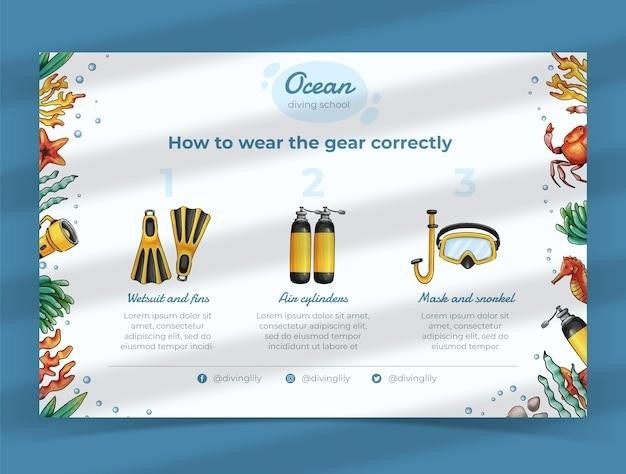Jonah Study Guide PDF⁚ Key Themes and Resources
Downloadable PDFs offer structured study of Jonah’s disobedience, God’s mercy towards Nineveh, and Jonah’s eventual repentance. Explore resources focusing on the gospel message within the narrative, gaining insights into the prophet’s role and the book’s theological interpretations. Access free printable activities and commentaries for deeper understanding.
Understanding Jonah’s Disobedience
Jonah’s defiance of God’s command to preach repentance to the Ninevites forms the central conflict of the book. His disobedience stems from his reluctance to show mercy to a perceived enemy. This refusal reveals a nationalistic bias and a lack of faith in God’s capacity for forgiveness. Explore Jonah’s internal struggle – his fear, prejudice, and the internal conflict between his personal feelings and God’s will. Analyze the consequences of his actions, including the storm at sea and his eventual swallowing by the great fish. Consider the implications of his disobedience in the context of God’s universal love and the potential for redemption.
Many study guides delve into the psychological aspects of Jonah’s character, highlighting his pride, self-righteousness, and the limitations of his prophetic understanding. Understanding his disobedience is key to grasping the larger themes of God’s mercy, grace, and the importance of obedience to divine commands, even when facing difficult or seemingly unjust circumstances.
Exploring the Significance of Nineveh
Nineveh, the Assyrian capital, represents a powerful and ruthless empire, a sworn enemy of Israel. Its inclusion in the narrative broadens the scope of God’s compassion beyond national boundaries. The city’s repentance and God’s subsequent mercy challenge anthropocentric views of divine justice. Study guides often discuss Nineveh’s significance as a symbol of unexpected redemption and the universality of God’s love, extending even to those considered enemies. Analyzing Nineveh’s historical context helps illuminate the significance of its repentance. Consider the political and cultural implications of this act.
The city’s complete turnaround, from wickedness to repentance, highlights the transformative power of God’s word. Examine how Nineveh’s response contrasts with Jonah’s own reluctance, underscoring the theme of God’s grace and the potential for change even in seemingly irredeemable situations. Many resources explore the archaeological evidence relating to Nineveh and its eventual destruction, adding a historical dimension to the narrative.
Analyzing Jonah’s Reluctance and God’s Mercy
Jonah’s defiance of God’s command to preach repentance to Nineveh reveals a profound conflict within the prophet. His reluctance stems from nationalistic prejudice and a perceived injustice in extending God’s grace to the Assyrians, Israel’s enemies. Study guides explore Jonah’s fear and anger, highlighting the human struggle against divine will. Analyzing his actions, including his attempt to flee to Tarshish, reveals his flawed understanding of God’s mercy and justice.
God’s response to Jonah’s disobedience, marked by the storm, the whale, and eventual forgiveness, underscores the boundless nature of divine compassion. The juxtaposition of Jonah’s human failings with God’s unwavering grace forms a central theme. Consider how God’s mercy towards Nineveh challenges Jonah’s limited perspective and expands the concept of redemption. Many study guides focus on the significance of Jonah’s prayer from the belly of the whale as an expression of repentance and a turning point in his understanding of God’s character. The narrative ultimately celebrates God’s willingness to forgive even the most recalcitrant.

Utilizing Online Study Guides and Resources
The internet provides numerous resources for studying Jonah. Find free printable worksheets, lesson plans, and commentaries. Explore websites offering gospel-focused studies and scholarly analyses to enhance your understanding of this biblical book.
Accessing Free Printable Resources and Activities
Numerous websites offer free printable resources to enhance your Jonah study. These can include engaging activities for children, such as coloring pages featuring Jonah and the whale, or mazes tracing his journey. For older students or adults, there are printable study guides with questions for reflection and discussion, prompting deeper engagement with the text. Some sites provide outlines summarizing key events and themes, aiding in comprehension and retention. You might find crossword puzzles or word searches based on vocabulary from the Book of Jonah, offering a fun, interactive way to learn key terms and concepts. Look for downloadable worksheets with fill-in-the-blank exercises or matching activities that reinforce understanding of the narrative’s plot points and characters. These free resources make studying the Book of Jonah accessible and enjoyable for various age groups and learning styles, transforming a potentially challenging biblical study into an engaging and enriching experience. Remember to check the source’s reliability before using any resource.
Finding Gospel-Focused Study Materials
Many resources connect the Book of Jonah to the central message of the Gospel. Seek out study guides that highlight the parallels between Jonah’s reluctance and our own resistance to God’s will. Explore materials emphasizing God’s unwavering love and mercy, even towards those who seem undeserving, as exemplified by his compassion for Nineveh. Look for resources that connect Jonah’s repentance to the transformative power of faith and the importance of turning from sin towards God. Gospel-centered studies often interpret Jonah’s experience as a foreshadowing of Jesus’ ministry and sacrifice, underscoring themes of redemption and forgiveness. Consider studies that analyze Jonah’s prayer in the belly of the whale as a model of heartfelt confession and reliance on God’s grace. Some resources may focus on the message of universal salvation implied in God’s mercy towards Nineveh, expanding on the scope of God’s love. These materials provide rich theological insights, enriching your understanding of Jonah within the broader context of Christian faith.
Utilizing Commentary and Scholarly Works
To enrich your understanding of the Book of Jonah, explore reputable commentaries and scholarly works. These resources offer diverse perspectives on the text’s historical context, literary style, and theological interpretations. Consult commentaries from respected biblical scholars, considering their theological viewpoints and methodologies. Scholarly articles and books often delve into specific aspects of the narrative, providing in-depth analyses of Jonah’s character, God’s actions, and the significance of Nineveh’s repentance. Examine different interpretations of the book’s genre – whether it’s a historical account, an allegory, or a combination of both – to broaden your perspective. Pay attention to how scholars address the apparent contradictions and complexities within the story, and how they attempt to reconcile them with other biblical narratives. This in-depth exploration will provide a more comprehensive understanding of the book’s rich layers of meaning and its enduring relevance to contemporary faith.

Exploring Deeper Theological Interpretations
Delve into the theological richness of Jonah⁚ Is it historical or allegorical? Analyze Jonah’s prophetic role, his prayer, and repentance. Consider the significance of God’s mercy extended to Nineveh. Uncover the deeper spiritual meanings within the text.
The Book of Jonah⁚ A Historical Account or Allegory?
The interpretation of Jonah as either a historical account or an allegory has been a subject of extensive debate among biblical scholars. Some view the narrative as a straightforward historical account of the prophet Jonah’s mission to Nineveh, emphasizing the literal details of the story, including the large fish. Others propose that the story functions primarily as an allegory, a literary device using symbolic language to convey a deeper theological message. This perspective often focuses on the themes of God’s universal love and compassion, extending even to those considered enemies. The allegorical interpretation emphasizes the literary devices within the text, such as the dramatic elements and the symbolic representation of the sea and the fish. Ultimately, the question of whether Jonah is historical or allegorical remains a matter of ongoing scholarly discussion and individual interpretation. A balanced approach might suggest elements of both, recognizing the potential for historical grounding while acknowledging the narrative’s powerful symbolic and theological implications. Exploring both perspectives can enrich one’s understanding of the book’s complexities and its enduring relevance.
Jonah’s Role as a Prophet and Messenger
Jonah’s primary role in the biblical narrative is that of a prophet, a messenger of God’s word. His story highlights the complexities and challenges inherent in fulfilling this calling. Unlike many prophets who ministered primarily to the Israelites, Jonah’s mission is directed towards Nineveh, the capital of the Assyrian empire, a nation considered Israel’s enemy. This aspect underscores the expansive nature of God’s concern, extending beyond national boundaries and embracing even those perceived as adversaries. Jonah’s reluctance to obey God’s command reveals a significant aspect of his character⁚ a limited understanding of divine mercy and justice. His disobedience and subsequent experiences at sea, within the large fish, and finally in Nineveh, serve as a powerful illustration of the consequences of defying God’s will. Yet, his eventual compliance and the message he delivers to the Ninevites demonstrate the transformative power of God’s grace. Ultimately, Jonah’s role is not only to deliver a divine message but also to model the human experience of encountering God’s challenging commands and the potential for repentance and reconciliation.
The Significance of Jonah’s Prayer and Repentance
Jonah’s prayer from the belly of the great fish (Jonah 2) stands as a pivotal moment of repentance and a powerful testament to God’s unwavering mercy. Trapped in the fish’s belly, facing imminent death, Jonah acknowledges his transgression and appeals to God for forgiveness. His prayer is not merely a plea for rescue but a heartfelt confession of his disobedience and a recognition of God’s boundless power and compassion. The detailed description of his plight, his acknowledgment of his own sinfulness, and his expression of faith in God’s capacity for deliverance, highlight the depth of his remorse. This prayer reveals a profound shift in Jonah’s perspective; it marks a transition from rebellion and self-preservation to a sincere desire for restoration and reconciliation with God. The prayer’s significance extends beyond Jonah’s personal transformation. It serves as a model for those who have strayed from God’s path, offering hope and reassurance of God’s readiness to forgive and restore. It underscores the importance of humility and genuine repentance in seeking God’s grace and mercy. The prayer’s inclusion in the narrative emphasizes the transformative power of sincere repentance and its central role in the narrative’s redemptive arc.



0 Comments